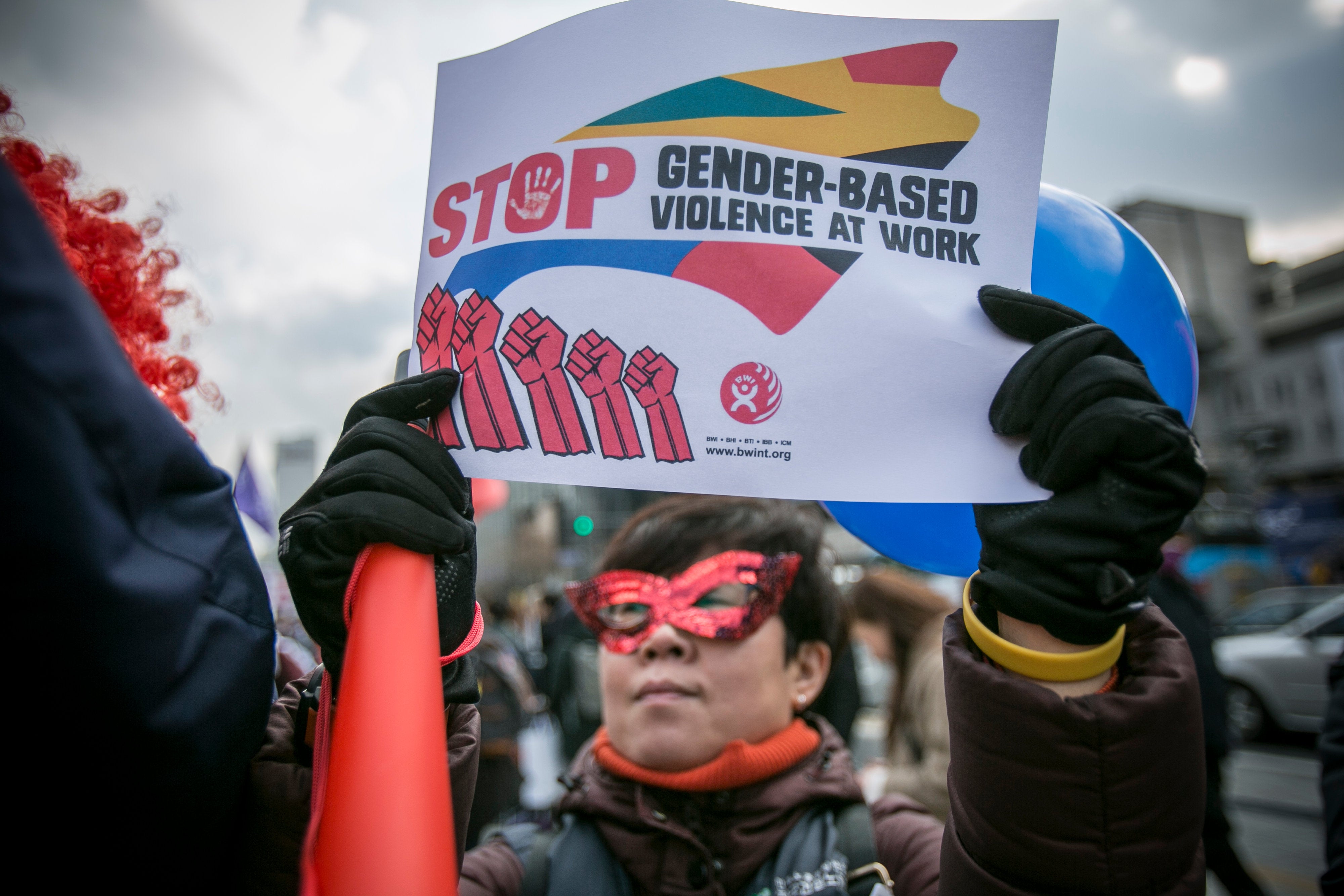Half of women report unwanted sexual behaviour at work, damning YouGov survey finds
Exclusive: ‘Government must act if their commitment to responding to sexual harassment at work is to be more than just lip service,’ says senior legal officer

Your support helps us to tell the story
From reproductive rights to climate change to Big Tech, The Independent is on the ground when the story is developing. Whether it's investigating the financials of Elon Musk's pro-Trump PAC or producing our latest documentary, 'The A Word', which shines a light on the American women fighting for reproductive rights, we know how important it is to parse out the facts from the messaging.
At such a critical moment in US history, we need reporters on the ground. Your donation allows us to keep sending journalists to speak to both sides of the story.
The Independent is trusted by Americans across the entire political spectrum. And unlike many other quality news outlets, we choose not to lock Americans out of our reporting and analysis with paywalls. We believe quality journalism should be available to everyone, paid for by those who can afford it.
Your support makes all the difference.Half of women report having suffered unwanted sexual behaviour in the workplace, according to a new poll.
Around a quarter of women suffered unwanted touching at work, heard colleagues make comments of a sexual nature about a fellow colleague in front of them at work, or were questioned or interrogated about their sex life in the workplace, the survey by YouGov found.
Researchers, who polled over 1,000 women living in the UK, found one in 10 women suffered sexual assault at work and one per cent of women had experienced a rape or attempted rape at work.
Sarah Morrison, a senior campaigner at Avaaz, a global civic movement that commissioned the survey, said: “No woman should ever have to fear sexual violence or harassment at work, but shockingly it is still part of working life for millions of women in Britain.”
Ms Morrison warned sexual harassment in the workplace is prevalent across the world. Around one in four countries have no legal provision to protect women from sexual harassment at work but even those nations with measures in place do not always enact them properly, she said.
“Sexual harassment is a contributor to the persistent gender pay gap, because it contributes to fewer women entering or remaining in the labour market, and can impact the advancement of their careers as a result,” she added. “No women should feel afraid of going to their job. They deserve dignity and respect at work.”
The poll found around half of women in the UK who have ever worked believe the government is not doing enough to stop women from suffering sexual harassment in the workplace. While around six in ten women said if they knew their report of sexual harassment would remain anonymous or confidential, they would be more likely to come forward to report.
The data comes just before with the Generation Equality Forum gathering in Paris between 30 June and 2 July - an international summit to establish the global agenda on women’s rights during the next ten years.
One of the main items on the summit’s agenda will focus on whether governments should ratify the ILO Violence and Harassment Convention which is the first international convention in the world that expressly aims to safeguard employees from sexual harassment in the workplace. The UK has yet to ratify the treaty despite MPs and campaigners repeatedly calling for ministers to do so.
The convention describes itself as the “first international treaty to recognise the right of everyone to a world of work free from violence and harassment, including gender-based violence and harassment.”
“The prime minister has been talking a good game on gender, but now it’s time for his actions to match his words,” Ms Morrison said. “The UK must throw its weight behind this historic treaty to protect women all over the world from gender-based violence in the workplace. Women can’t wait any longer.”
Deeba Syed, senior legal officer at Rights of Women, told The Independent her prominent legal charity is strongly urging the UK government to ratify the ILO Convention against harassment and violence at work.
She added: ”The convention guarantees protections for women from harassment, not just from colleagues but also clients, customers, and patients, and are aimed at women who are particularly vulnerable, such as those doing domestic work, or those working at night or alone.
“Ratification is a key step in changing attitudes and misconceptions about sexual harassment and violence in the workplace. It will compel employers to acknowledge how women’s experience of discrimination operates within unequal power dynamics, whether they are working from home or on the frontline.
“Crucially, the Convention also addresses the effect of domestic abuse on women in the workplace, an increasingly growing issue since the Covid-19 pandemic, and would enshrine rights to paid leave and flexible working that victims do not currently have.”
Ms Syed noted calls to the Rights of Women’s advice line, which provides free legal advice for women who have suffered sexual harassment at work, demonstrates the “devastating” repercussions it has on “women’s lives” - adding that those affected “deserve justice and safety”.
She added: “It has been over a year since the government closed their ‘Consultation on Sexual Harassment in the Workplace’ and we are still waiting on if they will decide to strengthen the law. The government must act if their commitment to responding to sexual harassment at work is to be more than just lip service.”


Join our commenting forum
Join thought-provoking conversations, follow other Independent readers and see their replies
Comments